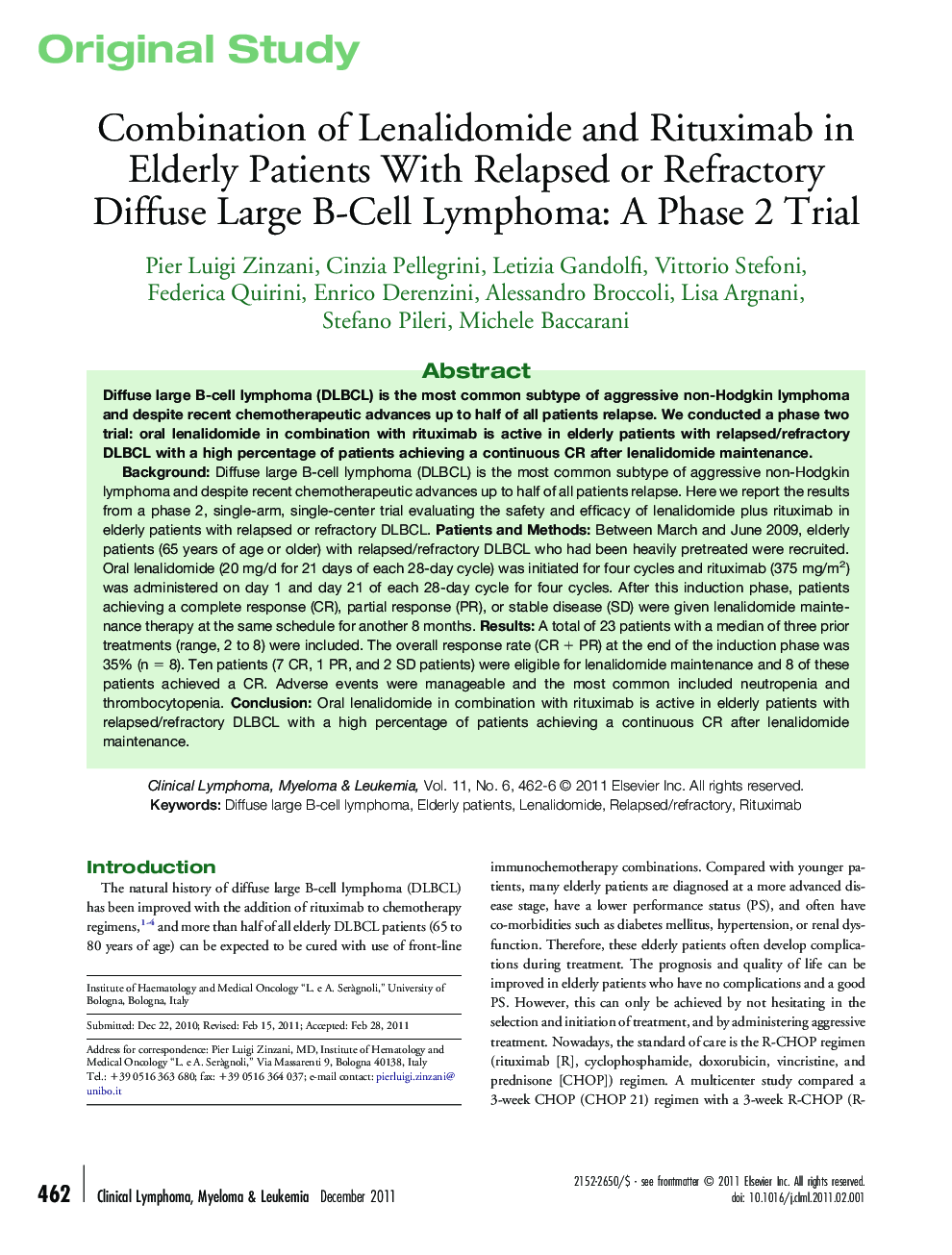| Article ID | Journal | Published Year | Pages | File Type |
|---|---|---|---|---|
| 2755231 | Clinical Lymphoma Myeloma and Leukemia | 2011 | 5 Pages |
BackgroundDiffuse large B-cell lymphoma (DLBCL) is the most common subtype of aggressive non-Hodgkin lymphoma and despite recent chemotherapeutic advances up to half of all patients relapse. Here we report the results from a phase 2, single-arm, single-center trial evaluating the safety and efficacy of lenalidomide plus rituximab in elderly patients with relapsed or refractory DLBCL.Patients and MethodsBetween March and June 2009, elderly patients (65 years of age or older) with relapsed/refractory DLBCL who had been heavily pretreated were recruited. Oral lenalidomide (20 mg/d for 21 days of each 28-day cycle) was initiated for four cycles and rituximab (375 mg/m2) was administered on day 1 and day 21 of each 28-day cycle for four cycles. After this induction phase, patients achieving a complete response (CR), partial response (PR), or stable disease (SD) were given lenalidomide maintenance therapy at the same schedule for another 8 months.ResultsA total of 23 patients with a median of three prior treatments (range, 2 to 8) were included. The overall response rate (CR + PR) at the end of the induction phase was 35% (n = 8). Ten patients (7 CR, 1 PR, and 2 SD patients) were eligible for lenalidomide maintenance and 8 of these patients achieved a CR. Adverse events were manageable and the most common included neutropenia and thrombocytopenia.ConclusionOral lenalidomide in combination with rituximab is active in elderly patients with relapsed/refractory DLBCL with a high percentage of patients achieving a continuous CR after lenalidomide maintenance.
